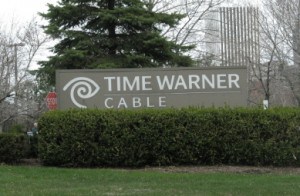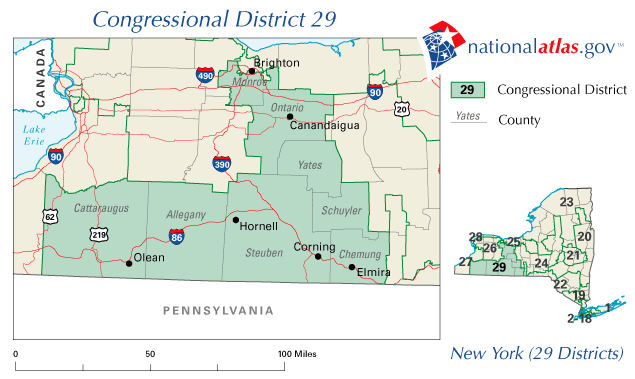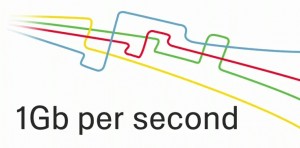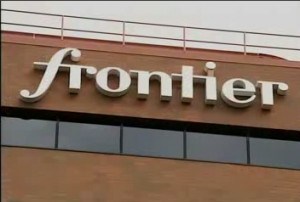
Frontier's headquarters in Rochester, N.Y.
Frontier Communications has dismissed the proposition of Google constructing a 1Gbps fiber-to-the-home network, telling readers of the Rochester Democrat & Chronicle that most users don’t need ultra-fast Internet access.
Ann Burr, chairman and general manager of Frontier Communications of Rochester made the remark in response to news that citizens and business leaders are excited about promoting Monroe County as a potential test location for Google’s fiber network experiment.
Frontier, which serves Rochester and most of the 585 area code, accused Google of having “a poor track record of following through on such proposals and that creating a fiber-optic network from scratch would be enormously expensive.”
Pot to kettle. Frontier’s illusory promises for fiber optic connectivity in states like West Virginia, where it seeks to take over the majority of the state’s phone customers from Verizon, never seem to include specific assurances such projects will reach customer homes.
“If Google built its own network, we estimate it would cost $5,000 per household,” Burr told the newspaper.
That’s as exaggerated as Frontier’s DSL speed claims.
Verizon Communications, which is in the business of providing fiber connectivity to the home, disclosed the true costs are far lower than that, and continue to decline. In the summer of 2008, Verizon’s Policy Blog noted:
Capital Costs
– We said our target per home passed was $700 by 2010, and we are ahead of plan to achieve that objective. In fact, we’ve already beaten the target.
– We said our target per home connected was $650 by 2010, and we’re on plan to hit that target.
No wonder Frontier doesn’t contemplate providing fiber service to customers. It created its own sticker shock.
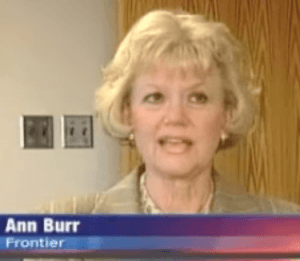 Still, the local phone company didn’t want to slam the door entirely on Google’s foot, suggesting it would be willing to talk about leasing space on Google’s network if it launched in the Flower City.
Still, the local phone company didn’t want to slam the door entirely on Google’s foot, suggesting it would be willing to talk about leasing space on Google’s network if it launched in the Flower City.
Frontier’s claim that customers don’t believe fast broadband service is important is a remarkable admission, particularly for a company that increasingly depends on broadband service to stop revenue loss from customers dropping traditional phone lines. That philosophy should be carefully considered by state officials and utility commissions reviewing Frontier’s proposal to take over Verizon phone lines in several states. Do communities want to receive broadband from a company that dismisses faster broadband speed as irrelevant for the majority of its customers?
Perhaps the remarks came with the understanding Frontier isn’t capable of delivering 21st century broadband speeds over its antique network of copper telephone wire anyway.
That’s the point Time Warner Cable has made repeatedly, especially in the Rochester metro area. The cable operator routinely promotes its Road Runner cable modem service’s speed advantages over Frontier’s DSL product. Frontier promises up to 10Mbps, but often manages far less (3.1Mbps was my personal experience with Frontier DSL last April.) Time Warner Cable promises up to 15Mbps, and often exceeds that with its “PowerBoost” feature. In rural areas, the phone company tops out at “up to 3Mbps.” Time Warner Cable notes most of its new broadband customers come at the expense of phone companies like Frontier. DSL customers switch because they do care about broadband speed.
Judging from the excitement in Rochester over Google’s proposal, Frontier’s dismissal of a fiber optic future seems out of touch, and potentially a drag on the local community’s economic future.
Rochester increasingly will become a broadband backwater because of anemic broadband competition from Frontier Communications. Its reliance on ADSL technology, more than a decade old, to deliver distance-sensitive broadband service looks out of place compared with the rest of New York State. Major cities throughout New York are being wired with fiber optic service by Verizon Communications. Verizon FiOS delivers up to 50Mbps service. Frontier maxes out at far lower speeds and defines an acceptable amount of broadband usage on its DSL service at just 5GB per month. Using Verizon’s FiOS fiber network, you’d exceed Frontier’s entire month’s ‘allowance’ in less than 15 minutes at Verizon’s speeds.
Rochester is one of many communities challenged by the transition away from a manufacturing economy towards a high technology future. A world class fiber optic network doesn’t just benefit big business. It spurs revolutionary growth in medicine, education, software development, telecommunications, and more. That means good paying jobs. For consumers with fiber to the home, it opens the door to telecommuting on a whole new level, distance learning opportunities, new ways to access information and entertainment, and allows home-based entrepreneurs to develop new businesses.
With Verizon FiOS unavailable to Rochester indefinitely, and Frontier unwilling to make appropriate investments to keep this city competitive with the rest of upstate New York, those jobs and economic benefits can go to Buffalo, Syracuse, Albany, Westchester County, and metropolitan New York City. We’ll be held back on the frontier with Frontier and its ideas of rationed broadband service.
[flv width=”360″ height=”260″]http://www.phillipdampier.com/video/WROC Ontario County Makes Bid for Super Fast Internet 2-11-2010.flv[/flv]
WROC-TV in Rochester reports that Ontario County, to the southeast of Rochester, may have a built-in advantage with an already-installed fiber loop covering much of the county. The county has a team working on a formal application to Google to provide service in communities like Geneva and Canandaigua. Frontier’s claims that consumers don’t care about fast broadband speed are belied by the excitement of residents of both counties. (2 minutes)
 Although residents of Rochester will have to wait, other cities in upstate and downstate New York are now getting Time Warner Cable’s Wideband broadband service, which provides faster upstream and downstream speeds thanks to DOCSIS 3 service upgrades.
Although residents of Rochester will have to wait, other cities in upstate and downstate New York are now getting Time Warner Cable’s Wideband broadband service, which provides faster upstream and downstream speeds thanks to DOCSIS 3 service upgrades.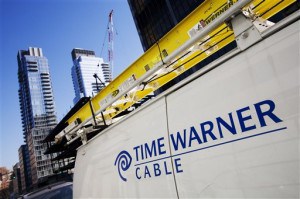 Time Warner Cable is deploying Wideband first in communities where they face competition from Verizon FiOS or AT&T U-verse. Communities like Rochester, which face only token competition from slower-speed DSL service, are pushed way back on the upgrade list.
Time Warner Cable is deploying Wideband first in communities where they face competition from Verizon FiOS or AT&T U-verse. Communities like Rochester, which face only token competition from slower-speed DSL service, are pushed way back on the upgrade list.

 Subscribe
Subscribe
